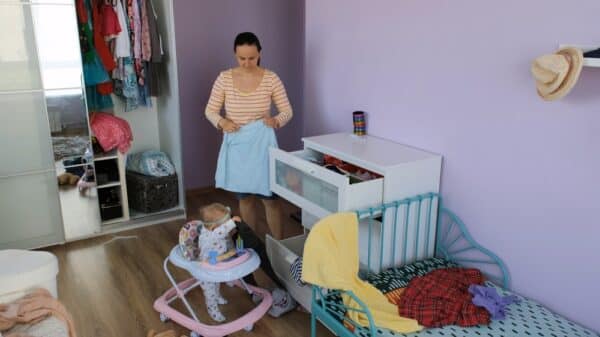It’s likely you know someone who is “no contact,” “low contact,” or otherwise estranged from a family member. You may even be aware of others contemplating such decisions. The trend of detaching from difficult or harmful family relationships seems to have gained significant traction recently, but what drives this shift?
Whitney Goodman, a marriage and family therapist and the author of the insightful book Toxic Positivity, shared her perspective on TikTok, and it resonates well.
“Decades ago, it was relatively simple to become estranged from a family member,” she states. “There was no need for specific labels. People didn’t have to label it as no contact or low contact; they could merely relocate across the country and perhaps only see that family member once a year or during holidays, making it easier to maintain distance.”
“Now,” she adds, “there are countless avenues for disruptive family members to reach out. If a family member is harmful, abusive, or struggles with boundaries, they can contact you through Facebook, Instagram, email, phone calls, texting, WhatsApp, and more. This often requires people nowadays to take a firmer stance on limiting those relationships, as there are so many ways for that individual to continue interacting with them and potentially causing harm.”
“This could explain why we now see estrangement articulated more explicitly. Older generations often lament, ‘We didn’t do that back in our time. Everyone kept in touch,’ when in reality, it’s likely some family members were choosing distance and separation but didn’t call it that because they didn’t need to.”
Initially, we attributed this to more individuals engaging in therapy and learning to assert their needs (and while that certainly plays a role, obviously), we hadn’t considered the influence of distance and technology on the issue. However, it makes a great deal of sense.
Commenters quickly recognized their own experiences in Goodman’s observations.
“My family has a long history of silent treatment,” remarked one user. “But after I went no contact, those relatives act as if I’m the villain.”
“Even when I attended college in ’09, I managed to create distance just by not going home,” noted another. “Since 2020, those relatives have found numerous methods to intrude, whether through social media, email, or text.”
“Growing up, it never struck me that my dad and his brother had no relationship, even though I never met my uncle,” said a third commenter. They reflected that the reality became apparent only after their husband pointed it out following the uncle’s absence from their wedding invitation.
Research from a study published in the Journal of Marriage and Family shows that 6% of survey participants reported a period of estrangement from their mothers, while 26% cited estrangement from fathers. This often occurs between the ages of 23 and 26, which aligns with the period when many begin to establish their independence as adults.
The next time an older family member remarks, “We never did this in my day” in regard to no contact, you don’t need to point all of this out, but feel free to do so. Alternatively, you can simply relish the satisfaction of knowing that their assertion is, in fact, not entirely accurate.
Image Source: Koldunov / Shutterstock



































